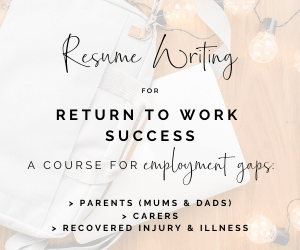Juggling work and a family means that 99% of the time you’re probably running around like a headless chook trying to get things done. And between making the lunches, doing the school drop-off’s and pick-up’s, and trying to kick career goals, there’s a good chance that the latest credit reporting protocol hasn’t quite made it onto your nighttime reading list!
Allow us to fill in the blanks. Comprehensive credit reporting came into play in Australia mid last year, which means that lenders now have a full-picture view of potential borrowers’ credit histories, including information on any open or closed credit accounts, credit limits and a full 24-month repayment history.
The previous negative credit reporting system only showed the negatives on your credit report, like late bill payments or loan defaults. But thanks to comprehensive credit reporting, lenders can now see positive data too, like consistent track records of on-time loan repayments and bills or solid savings habits.
This is great news for anyone who works from home as a freelancer, contractor or business owner. When you’re a self-employed or part-time work at home mum, getting finance has traditionally been much harder than for someone working a standard nine to five job on a regular salary.
But with comprehensive credit reporting, if you need funds to expand your business, get some extra cash flow or refit your home office, you’ll now be in a better position to prove your creditworthiness to lenders as your credit report will demonstrate your good money habits and reliability in repaying debt.
So, if you haven’t been paying much attention to your credit report, here are 6 tips to keep it in tip-top ship-shape!
1. Set up direct debits for your bills
To maintain a clean credit report, you’ll need to keep on top of all your bills and repayments. One way to ensure you never miss a payment is to set up direct debits for all your regular bills and expenses with BPAY so that they’re paid automatically.
You could even create a separate bank account dedicated to bills and have a set amount of your income deposited directly into it so that your bills are sorted before you can even touch your pay.
2. Close any unused credit accounts
To a lender or credit provider, every credit account you have open is viewed as another potential debt, even if you’re not actively using the account. So, if you have more than one credit account open, unless you’re using it, close it!
3. Pay more than the minimum
With full access to your credit report, lenders now have the ability to check your credit limits and repayment history to see how well you manage debt. So, if you have any outstanding fines or bills, you should make it a priority to pay them off as soon as possible.
A good rule of thumb is to stick within 30% of your credit limit on credit cards and pay back more than just the minimum repayment amount each month. Even better, pay off the full balance each month and enjoy those interest-free days!
4. Build up your credit credibility
It’s all good and well not to have a bad credit history, but not having a credit history at all could be just as bad. If you’re just starting out and don’t have any active lines of credit yet, then one way to build up a good credit report is with a low-interest credit card. Just be sure to pay your balance off in full each month or else you could wind up hurting your credit score, which just defeats the purpose.
Another reason to maintain good money habits is that banks and lenders are now starting to reward customers with good credit scores with cheaper interest rates on loans.
5. Think carefully about joint accounts
As the saying goes, “what’s mine is yours”. But what they don’t tell you is that this applies for debt too! If you and your partner share a joint loan or mortgage account together, and your partner defaults on a repayment, then both of your credit scores will cop the brunt of it.
Remember, in the movie Titanic, Jack and Rose couldn’t both fit on the door without sinking. So, if your partner’s money habits are dragging down your credit score, then it might be time to set up a new account that’s just in your name.
6. Limit new credit applications
Each time you apply for a loan or credit card, the bank needs to access your credit file to conduct a credit check, also known as a ‘hard inquiry’. Every hard inquiry you make is recorded on your credit history, so you want to avoid making too many within a short period of time.
From big banks to online peer to peer lenders, nowadays there’s a tonne of different lending options around, so, you should always shop around first to compare interest rates and fees before applying. You can even use Mozo’s free Rate Matcher tool to get a list of loans you’ll likely qualify for and the current interest rates to narrow down your options before applying.
 About the author:
About the author:
Rhianna Dews is a personal finance writer at Mozo, where she decodes complex industry jargon and turns tricky finance topics into practical tips and tricks.






